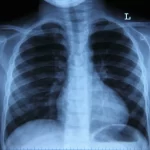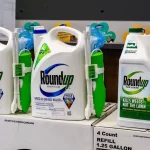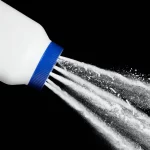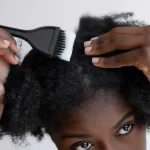Sexual Abuse Attorneys
Across the globe, sexual abuse has persistently troubled society and continues to be a challenge today. As a result, millions of lives worldwide continue to endure the emotional, psychological, and physical trauma associated with sexual abuse, which can continue to impact them their entire lives. So what can you do if you or your child has been a victim of sexual abuse? Well, you may want to consider filing a claim for compensation that will hold your abuser—and possibly the institution that enabled them—accountable.
Understandably, taking this step is anything but easy. This situation can dredge up past trauma, and you may find it difficult to rely on another person to fight for justice on your behalf. However, that’s why it’s vital to find an experienced legal team that will advocate for you zealously. Our team at Serling & Abramson, P.C. spares no effort in seeking justice and compensation for our clients. We will ensure that your abuser and the institution that supported them in performing these heinous crimes will be held fully accountable under the law.
What Is Sexual Abuse?
Sexual abuse can be defined as an engagement in or exposure to sexual activities wherein the victim did not or is unable to consent. This includes initiating sexual contact through coercion, force, or opportunity. The following acts are examples of what is considered sexual abuse when the victim cannot or did not consent:
- Vaginal, anal, or oral penetration with any body part or object.
- Fondling, especially of genitalia or breasts.
- Genital contact through hands, mouth, objects, etc.
- Intentional exposure of genitalia or sexual acts.
- Exposure to pornography.
- Exhibitionism or voyeurism.
- The use of spoken or written words to imply sexual content or intention.
- Attempting to perform any of the acts mentioned above can also be considered a form of sexual abuse.
The Role of Institutional Negligence in Sexual Abuse Cases
Abusers often hold important, trusted roles in a victim’s life, such as caretakers, family members, coaches, clergy members, physicians, group leaders, school teachers, and more. Historically, many institutions are aware of sexual abuse amongst their members and within their walls, yet have failed to take affirmative action to prevent it. This negligence has allowed thousands of children and adults to fall prey to sexual predators. Not only should these individual abusers be held accountable, but the institutions that they are part of must be as well.
Foster Care Agencies
The foster care system is meant to provide a healthy, loving, supportive home for children who had to be removed from their birth parents due to abuse or neglect. However, whatever the original intentions of foster care, many foster children are left in even more vulnerable or traumatizing situations. Studies completed by Oregon and Washington states have shown that nearly one in three foster children have experienced sexual abuse at the hands of a foster parent or another adult in the home. This can stem from the fact that the foster system is hugely understaffed, underfunded, and under-managed, which provides a devastatingly easy environment for a predator to strike.
Churches and Religious Organizations
In recent years, the horrific extent to which children alone have experienced sexual abuse within churches and religious organizations has stunned many. The power dynamic within these organizations is unique, contributing to the ease at which predators can move without consequence. Religious tenets and beliefs are twisted into tools for leaders to coerce or force victims into situations where sexual abuse can occur. As more cases of sexual abuse within these organizations come to light, we also begin to realize just how far some institutions have gone to cover up sexual abuse or deny its existence. This includes relocating the abuser, not taking action when a victim comes forward, or covering up the abuse entirely.
Mentoring Programs
Non-profit organizations often provide mentoring programs to create meaningful, educational connections between an adult and a child. Though background screening is usually part of the hiring process for potential mentors, not all predators have a criminal background—meaning that background checks aren’t always the best measure of children's safety. In addition, there are not always witnesses on-scene during activities for one-on-one mentoring programs. This leaves the child vulnerable to any potential predatory advances from a mentor. We suggest using thoroughly vetted mentoring programs that work in small groups or plan activities alongside other teams.
School Districts
Schools and universities are intended to provide a safe, healthy place for students to learn while under the tutelage of experienced teachers. However, sexual abuse is prevalent within these institutions. This abuse can occur at the hands of professors, teachers, staff, coaches, or even other students. Sexual abuse can even happen in the form of grooming, the process by which a predator cultivates a relationship with a potential victim to manipulate them into sexually abusive situations. When a school does not have the proper employee screening, security measures, or student counseling available, it is much more likely that sexual abuse will occur and can continue to occur.
Scouting Organizations
Scouting organizations, such as the Boy Scouts of America (BSA) and the Girl Scouts of America (GSA), were developed to instill essential values, principles, and skills in our children. However, in recent years, the BSA has been called out for burying and downplaying instances of sexual abuse between their leaders and the children they were meant to take care of. Instead of reporting predators, or suspected predators, to the authorities, the BSA chose to handle it internally and often just relocated the abuser. These actions failed to protect the organization’s children and led to a massive lawsuit in which thousands of past and present scouts sought compensation and justice.
Employers
While any gender can be a victim of sexual abuse in the workplace, women are more at risk. Studies show that about 8 out of 10 women have experienced workplace sexual misconduct in their lifetimes. This abuse often occurs by a boss or manager. Out of fear of retaliation in the way of firing, lost wages, and more, women often find themselves in vulnerable positions when under the power of predatory abusers. Women working for tips, working in a male-dominated position, working in isolated conditions, and working without legal immigration status or with a temporary work visa have exponentially increased the chances of becoming victims of workplace sexual abuse at the hands of their employers.
Daycares or Child Care Providers
Childcare and daycare are often an essential part of a working parent’s life. Child care centers are staffed mainly by empathetic, well-meaning workers who have your child’s best interests at heart. Unfortunately, sometimes some use their position as caretakers to prey on the very children they are meant to protect.
sexual abuse is assumed to only occur in private settings, this is not accurate. Daycares, unfortunately, can provide a perfect environment for grooming behaviors to occur, such as singling a child out with special treatment, praise, gifts, treats, and more. This manipulation is how a daycare predator can coerce a child into a situation where sexual abuse can occur. In addition, these predators will often leverage their established relationship to instill guilt and fear into the child should they try to report the abuse.
Understanding the Statute of Limitations on Sexual Abuse Cases
The statute of limitations (i.e., the maximum amount of time allowed for a person to bring forth a lawsuit from the time of the injury/abuse) varies widely from state to state. However, never assume that it’s been too long after your abuse for a case to be filed. While evidence can deteriorate, witness testimonies can become less reliable, and cases can be harder to prove over time—it is never impossible, especially for the experienced sexual abuse lawyers at Serling & Abramson, P.C.
Reasons Victims May Not Report Their Sexual Abuse
Children who have been victims of sexual abuse, in particular, struggle with wanting to report it. These reasons may include:
- Their abuser is someone they know and should trust
- They don’t want to get in trouble
- They don’t have “proof” of physical injuries
- They’re worried that adults won’t believe them
- They don’t fully understand what happened
- Their abuser has threatened them into not reporting
- They feel guilty, ashamed, or afraid
Adults often do not report for the following reasons:
- They were previously intimate with their abuser or had a relationship with them
- The abuser didn’t “fully” sexually assault them or was scared off before they were “finished”
- They don’t have “proof” of physical injuries
- They’re worried that law enforcement won’t believe them
- They don’t want to be retaliated against
- Their abuser has threatened them into not reporting
- They feel guilty, ashamed, or afraid
- They fear that too much time has passed to come forward
While it’s understandably difficult for victims to come forward about their sexual abuse, they should do so as soon as possible if they plan on doing so. The likelihood of a successful lawsuit is much higher the sooner sexual abuse is reported.
Let Us Help
Our legal team at Serling & Abramson, P.C. has extensive experience working with survivors of sexual abuse. We guarantee that every person who shares their experiences with us is handled with respect, empathy, and confidentiality. We can’t undo the terrible acts committed against you or your loved one, but we can work to hold those who did fully responsible. Contact us for a free case evaluation if you would like to discuss your rights and your options.
















